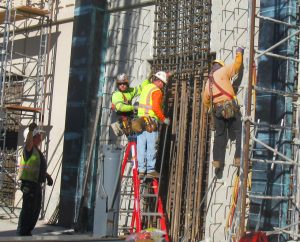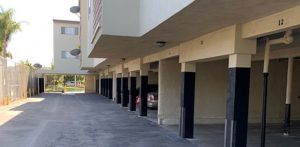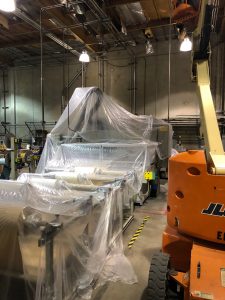Archives for: February 9th, 2026
Functional recovery after an earthquake describes a building’s ability to resume essential operations within a reasonable timeframe—without requiring full reconstruction or extended closure. In practical terms, functional recovery means a building is safe to occupy and capable of supporting most of its intended uses, even if some non-critical systems still need repair. It’s often described […]
Written by Saunders Seismic on 9th February 2026
In many Western commercial districts, historic buildings and earthquake risk are closely linked—even if that risk isn’t obvious from the street. If you own or manage property in a downtown core, an early commercial corridor, or an adaptive reuse district, there’s a good chance the building was designed and built before modern seismic standards took […]
Written by Saunders Seismic on 28th January 2026
A structural inspection is often the first step in understanding what’s really going on with your building—especially if you’re located in an earthquake-prone area. You may be planning a purchase. You may have noticed cracking or movement. Or you may simply want clarity before making bigger decisions. A structural inspection helps you understand risk, safety, […]
Written by Saunders Seismic on 13th January 2026
Many business owners have heard the term seismic retrofit, but many picture something far more invasive than what actually happens. Typical concerns include walls taken down to the studs, ceilings removed, entire floors closed, and tenant operations shut down for weeks. In reality, typical seismic retrofits focus on strengthening the structural roof connections that keep […]
Written by Saunders Seismic on 18th December 2025
Preparing a budget for a seismic retrofit project is a critical step in managing costs and expectations. Creating an accurate seismic retrofit budget requires clear information, early coordination, and a detailed understanding of your building. A precise budget helps you plan, secure financing, and avoid surprises once design work begins. The more information you provide upfront, […]
Written by Saunders Seismic on 4th December 2025
If you own or manage a commercial or industrial property in the western US, you’ve likely wondered whether your building needs a seismic retrofit. It’s a common concern–especially for owners of older structures who want clarity before investing in any upgrades. This guide explains how to determine whether your building qualifies for a seismic retrofit, […]
Written by Saunders Seismic on 18th November 2025
Soft-story buildings — those with open ground floors or large storefronts — are among the most vulnerable structures during earthquakes. When the first floor lacks the rigidity to support the upper levels during lateral shaking, the result can be catastrophic: leaning, cracking, or even collapse. Earthquake data and engineering studies underscore the urgency of seismic […]
Written by Saunders Seismic on 6th November 2025
Roof condensation poses a hidden threat to the structural integrity of commercial and industrial buildings. If left unchecked, it can cause severe structural damage, lead to costly repairs, and create safety hazards, which can result in significant financial and operational disruptions for business owners. Before diving into the risks and solutions, let’s explore what roof […]
Written by Saunders Seismic on 22nd October 2025
Seismic retrofits in occupied buildings don’t have to mean chaos. When property managers hear “seismic retrofit” or “structural repair,” one thought often comes to mind: tenant disruption. Dust, noise, blocked access, late-night phone calls, unhappy tenants—it’s a nightmare scenario for managers who already juggle vendors, compliance, and budgets every day. The good news? It doesn’t […]
Written by Saunders Seismic on 21st October 2025
Every third Thursday in October, the Great California ShakeOut helps millions of Californians rehearse their earthquake response. On October 16, 2025, at 10:16 a.m., participants will take one minute to “Drop, Cover, and Hold On.” Over the years, the ShakeOut has grown dramatically. More than 10.2 million Californians joined in 2024, and over 10 million […]
Written by Saunders Seismic on 14th October 2025










